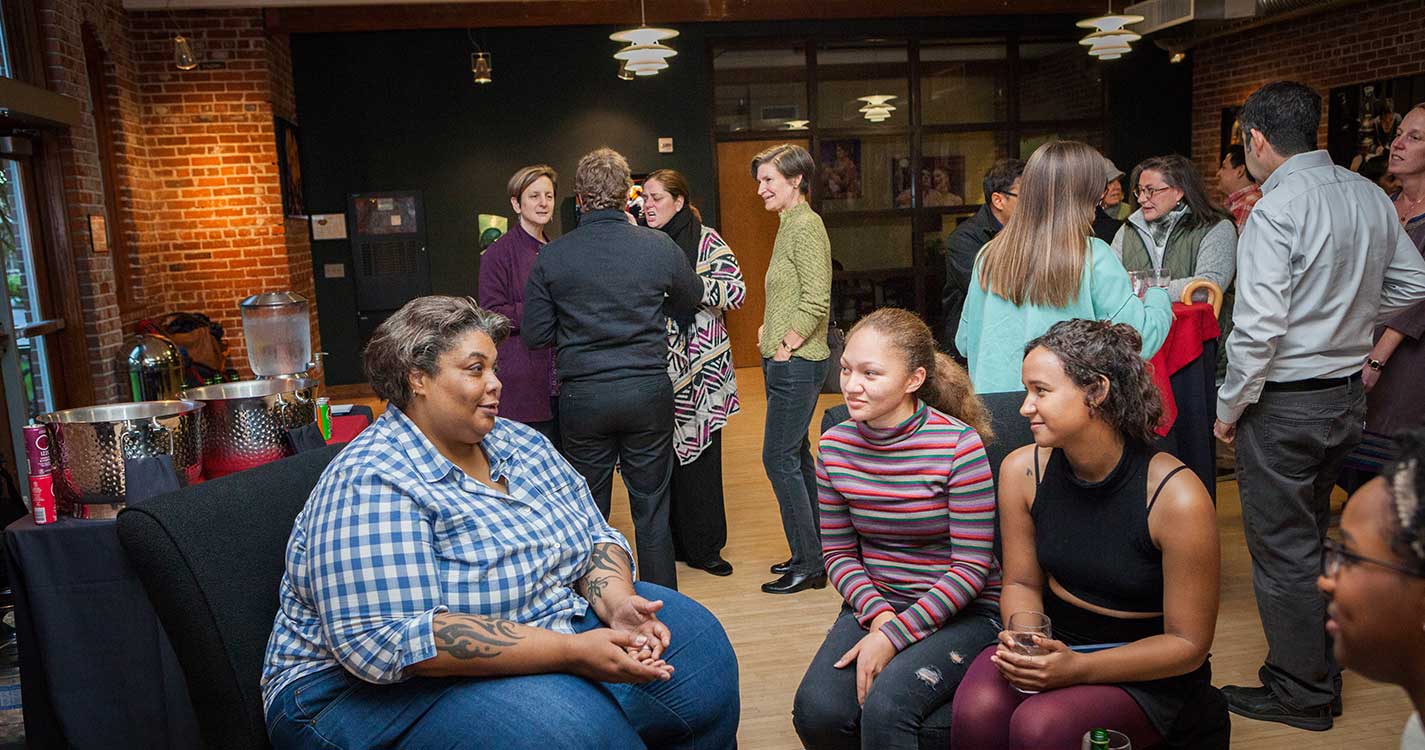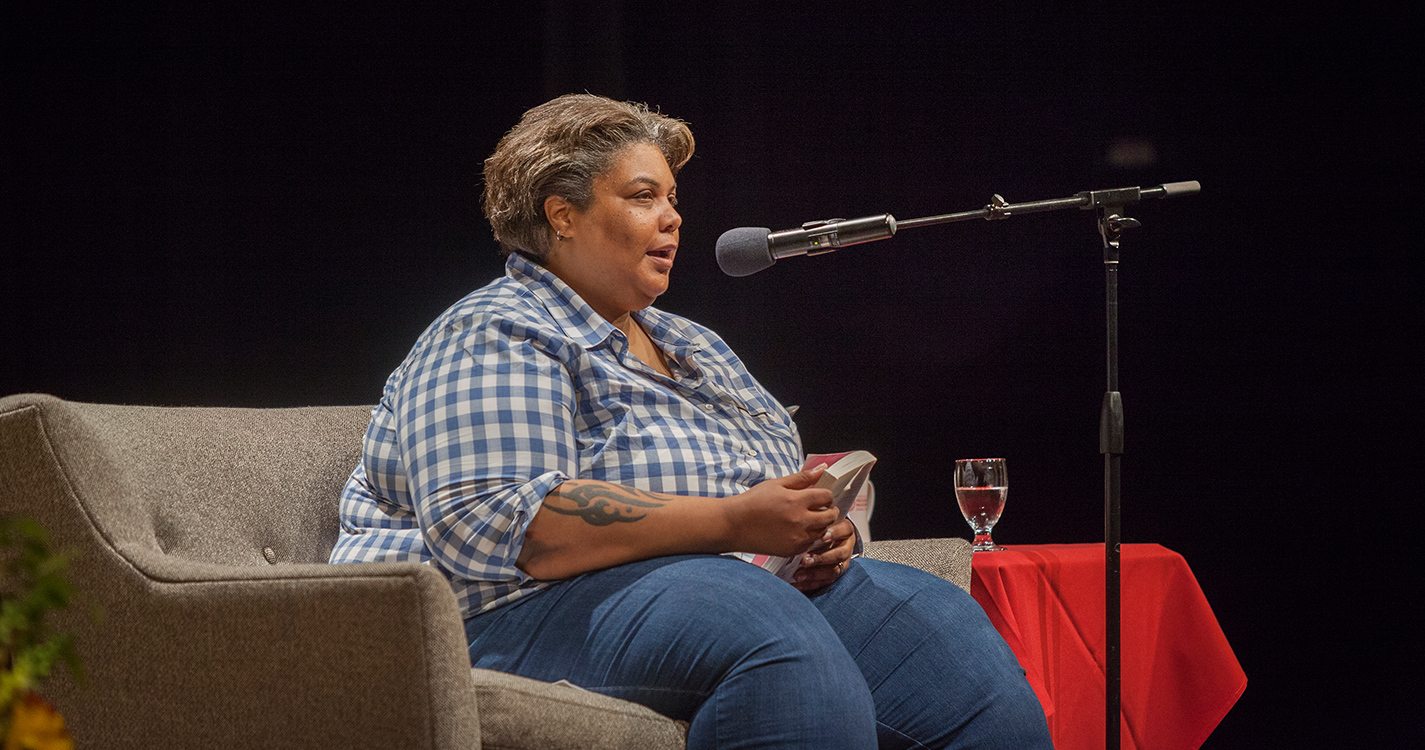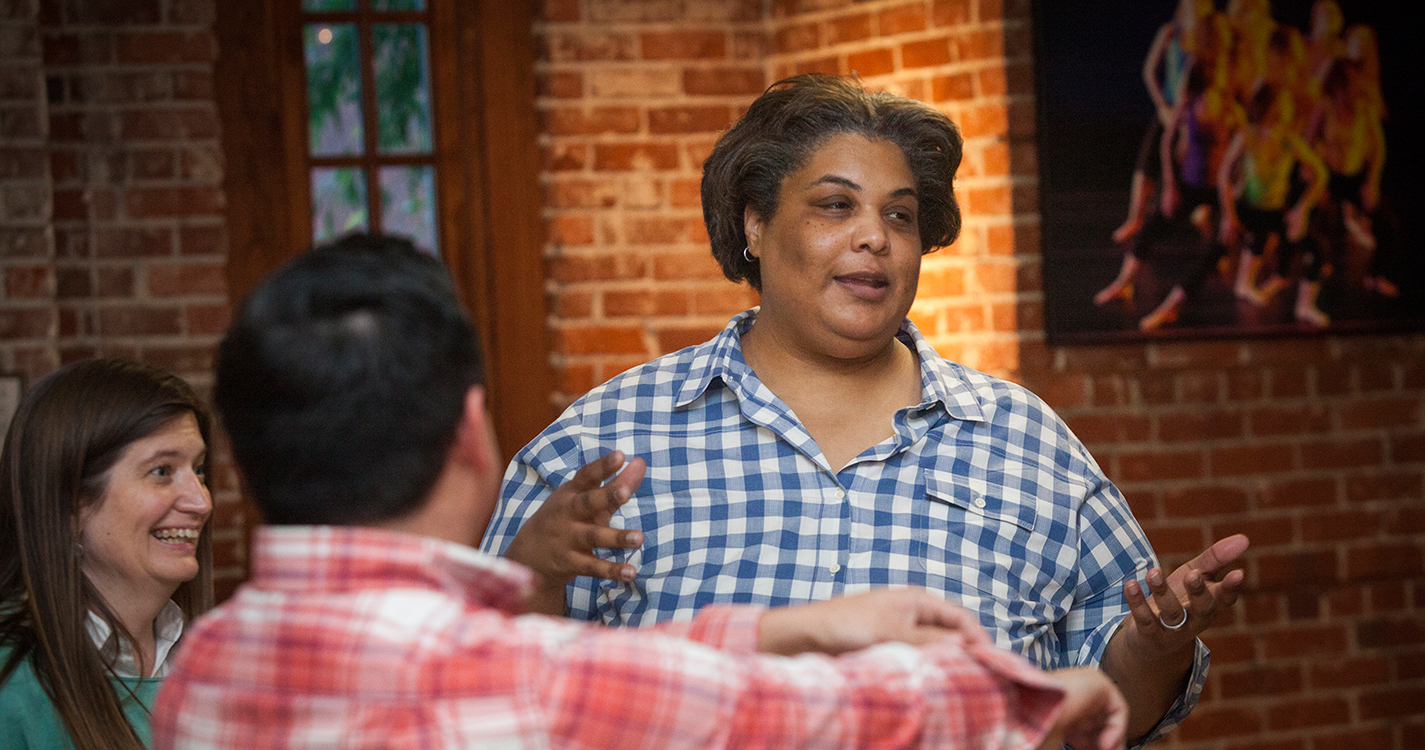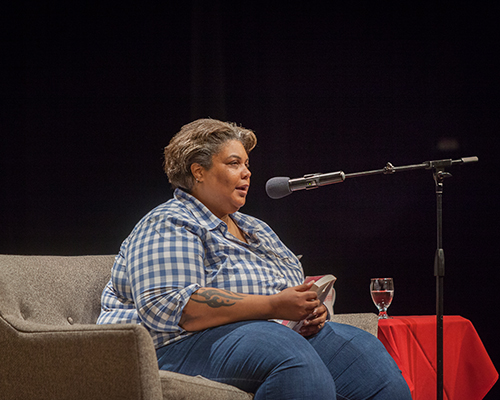“What advice would you give to queer people of color who may feel they are struggling to thrive in systems not built for them?”
“Your stance on trigger warnings is a great idea in theory, but I wouldn’t say we’re to the point in society where we can afford to take that stance. Could you comment on that?”
“What are the biggest challenges facing modern feminism and the main issues feminists should take on?”
“What keeps you going?”
One after another, students and community members stepped forward to ask acclaimed writer and “bad feminist” Roxane Gay questions during the Atkinson Lecture on Tuesday in Smith Auditorium.
Questions ranged across a diversity of topics including parenting advice, domestic violence, weight, rap, microaggression, writing, sex, racism, breakups and Beyonce. In all, Gay answered more than two dozen questions.
One student sought advice for queer people of color who struggle to thrive in an unfriendly world.
“You have to create space for yourself to thrive. Sometimes we wait too long to thrive in places that are inhospitable to us and will always be inhospitable,” Gay said. “Creating spaces within those inhospitable spaces where you can thrive — that’s the most important thing you can do.”
After a student asked how to deal with the societal expectation that a man’s sexual needs must be met at the expense of a woman’s, Gay responded, “You guys don’t disappoint. Today, I have been asked some of the best questions.”
Gay emerged as a leading feminist voice in 2014 when her hilarious, provocative and daring collection of essays, “Bad Feminist,” became a New York Times Bestseller. The work, in which she deconstructs myths about what makes a good feminist and owns the fact that she’s a “bad feminist” who falls short of the ideal, is widely considered the quintessential exploration of modern feminism. She opened the Atkinson Lecture by reading excerpts from the collection, which Time magazine called “a manual on how to be human.”
Her next book “Hunger,” a memoir about trauma and obesity, will be released in January. Gay is also writing an upcoming comic book series, “World of Wakanda.” She will be the first black female writer to pen a comic book for Marvel Comics.
When she arrived on campus, Gay met with a small group of students from Danielle Deulen’s “Creative Nonfiction” and Leslie Dunlap’s “Feminism, Gender and Society” classes. Zach Ward ’17 attended.
“Having Willamette bring in a queer person of color and being able to have a conversation with her was really impactful,” Ward said. “The ability to see and interact with part of the world that isn’t necessarily in Salem is really important.”
Ward was particularly struck by Gay’s essay “The Illusion of Safety/The Safety of Illusion” in which she’s critical of trigger warnings — professors or other speakers announcing that something potentially disturbing is about to be said in class or a meeting.
“That is not where most people at Willamette are at on the issue,” he said. “Hearing someone who had a different view but was able to defend it elegantly and make several strong points, that was really good for students.”
Reading from her essay, “Typical First Year Professor,” Gay related to the Willamette audience her experiences as the lone person of color teaching English at Purdue University. In the Q-and-A session afterwards, she spoke candidly about the lack of diversity in academia. She challenged Willamette to increase the diversity of its faculty and student populations and to find better ways of supporting people of color once they arrive on campus.
“She was the perfect person to have on campus at this time. She connected with students who felt marginalized in different ways and was very open with them,” said Sarah Bishop, department chair of German and Russian, who was Gay’s campus host. “The students were incredibly at home with her, as she was with them.”




